Filter by
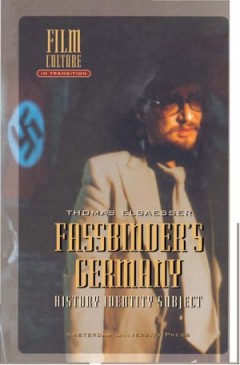
Fassbinder's Germany
Rainer Werner Fassbinder is one of the most prominent and important authors of post-war European cinema. Thomas Elsaesser is the first to write a thoroughly analytical study of his work. He stresses the importance of a closer understanding of Fassbinder's career through a re-reading of his films as textual entities. Approaching the work from different thematic and analytical perspectives, Elsae…
- Edition
- -
- ISBN/ISSN
- 9789053560594
- Collation
- -
- Series Title
- -
- Call Number
- -
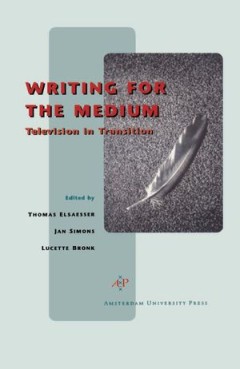
Writing for the Medium: Television in transition
This collection of essays, by well known writers on the subject of writing for television, is divided into three sections, with the first one devoted to the debates on quality television. The second one focuses on literature and television. The final section examines 'Science on television', with series editors from Britain and Germany giving first-hand accounts of the scope for serious science…
- Edition
- -
- ISBN/ISSN
- 9789053560549
- Collation
- -
- Series Title
- -
- Call Number
- 791.45 ELS w
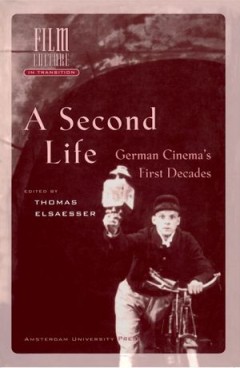
A Second Life
German cinema is best known for its art cinema and its long line of outstanding individual directors. The double spotlight on these two subject has only deepened the obscurity surrounding the popular cinema. A Second Life performs a kind of archaeology on a period largely overlooked: the first two decades of German cinema. This collection of essays by established authors refocuses the terms of …
- Edition
- -
- ISBN/ISSN
- 9789053561720
- Collation
- -
- Series Title
- -
- Call Number
- 790.2 ELS s
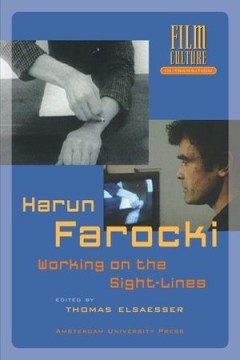
Harun Farocki
For more than thirty years Farocki has been a filmmaker, documentarist, film-essayist and installation artist. What preoccupies him above all is not so much an image of life, but the life of images, as they surround us in the newspapers, the cinema, history books, user manuals, posters, CCTV footage and advertising. His vast oeuvre of some sixty films includes three feature films (Zwischen den …
- Edition
- -
- ISBN/ISSN
- 9789053566350
- Collation
- -
- Series Title
- -
- Call Number
- 791.43 ELS h

Fassbinder's Germany
Rainer Werner Fassbinder is one of the most prominent and important authors of post-war European cinema. Thomas Elsaesser is the first to write a thoroughly analytical study of his work. He stresses the importance of a closer understanding of Fassbinder's career through a re-reading of his films as textual entities. Approaching the work from different thematic and analytical perspectives, Elsae…
- Edition
- -
- ISBN/ISSN
- 9789053560594
- Collation
- -
- Series Title
- -
- Call Number
- 791 ELS f
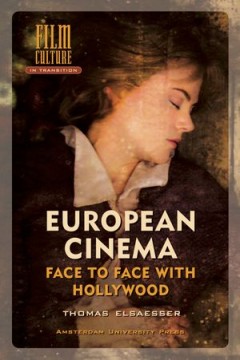
European Cinema: Face to Face with Hollywood
In the face of renewed competition from Hollywood since the early 1980s and the challenges posed to Europe's national cinemas by the fall of the Wall in 1989, independent filmmaking in Europe has begun to re-invent itself. European Cinema: Face to Face with Hollywood re-assesses the different debates and presents a broader framework for understanding the forces at work since the 1960s. These in…
- Edition
- -
- ISBN/ISSN
- 9789053565940
- Collation
- -
- Series Title
- -
- Call Number
- 791.43 ELS e
 Computer Science, Information & General Works
Computer Science, Information & General Works  Philosophy & Psychology
Philosophy & Psychology  Religion
Religion  Social Sciences
Social Sciences  Language
Language  Pure Science
Pure Science  Applied Sciences
Applied Sciences  Art & Recreation
Art & Recreation  Literature
Literature  History & Geography
History & Geography